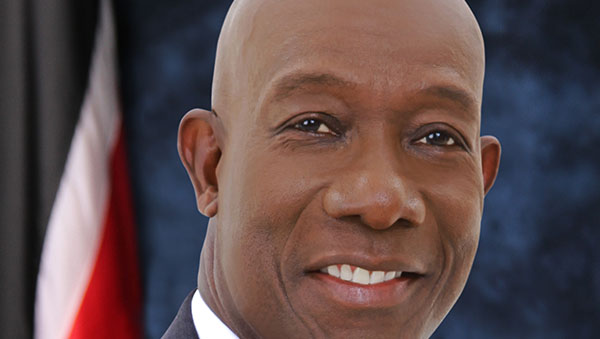PORT OF SPAIN, Trinidad and Tobago, May 2, (CMC) – Prime Minister, Dr. Keith Rowley, says his administration has not discussed decriminalising marijuana, even as his Attorney General, Faris Al-Rawi, is quoted as saying that it is reviewing existing legislation as well as planning wide consultation before adopting any position.
Rowley, speaking to reporters before his departure for the United States, said that he would be very surprised if the attorney general spoke to the decriminalisation of small amounts of marijuana when the matter was not discussed by Cabinet.
He said his government has been in office for just over seven months and has spent no time at all examining the decriminalisation of marijuana.
“I lead the cabinet and I don’t know that any such examination is taking place. I’ve seen the headline, I haven’t read the story but I’m pretty sure the Attorney General will really want to explain that and I would be very surprised if that is what he said”.
The Trinidad Guardian newspaper, on Monday, quoted Al-Rawi as saying there has been “a full exercise of analysing the types of crime in our prisons and the pre-trials detention or remand statistics for a range of offences, including possession of narcotics, and particularly possession of cannabis.
“From that perspective there’s certainly a drive to gather statistical information, as the issue of decriminalising of marijuana isn’t a simple one on the public side.”
But when questioned by the media, Al Rawi said he was speaking to the Trinidad Guardian as Attorney General and not on behalf of the government of Trinidad and Tobago.
“You must disaggregate the question of Cabinet versus government. I am the Attorney General of Trinidad and Tobago and it is quite simple, the questions posed to me by Gail Alexander (Guardian reporter) were in the context of the work that’s going on in the prison system, specifically the questions were posed in the context of the maximum sentencing approach and the issue that the Archbishop has raised, which coincides with the issue that we put into the public domain of really looking to see how people, who are remanded, have been managed by the criminal justice system,” he said.
Al-Rawi told the newspaper that “if one were to argue for decriminalisation, the limits to be applied must be considered.
“Does one wish to have a bus driver or teacher who’s in the course of using narcotics, although decriminalised, on the job? That’s one set of societal factors to consider. On the other hand, is it right to engage in pre-trial detention in remand for two joints of marijuana where your detention is, by far, longer than the conviction you can have?
“So obviously it involves proper consultation after gathering of statistical information so that when the issue is brought to the public’s attention, it must be brought with facts, statistics, extrapolation on statistics, androecial impact consideration as Trinidad and Tobago is a multi-dimensional society. There are, for instance, the views of religious bodies and civil society groups that have to be factored against any decision like this,” the attorney general said.
 Pride News Canada's Leader In African Canadian & Caribbean News, Views & Lifestyle
Pride News Canada's Leader In African Canadian & Caribbean News, Views & Lifestyle





